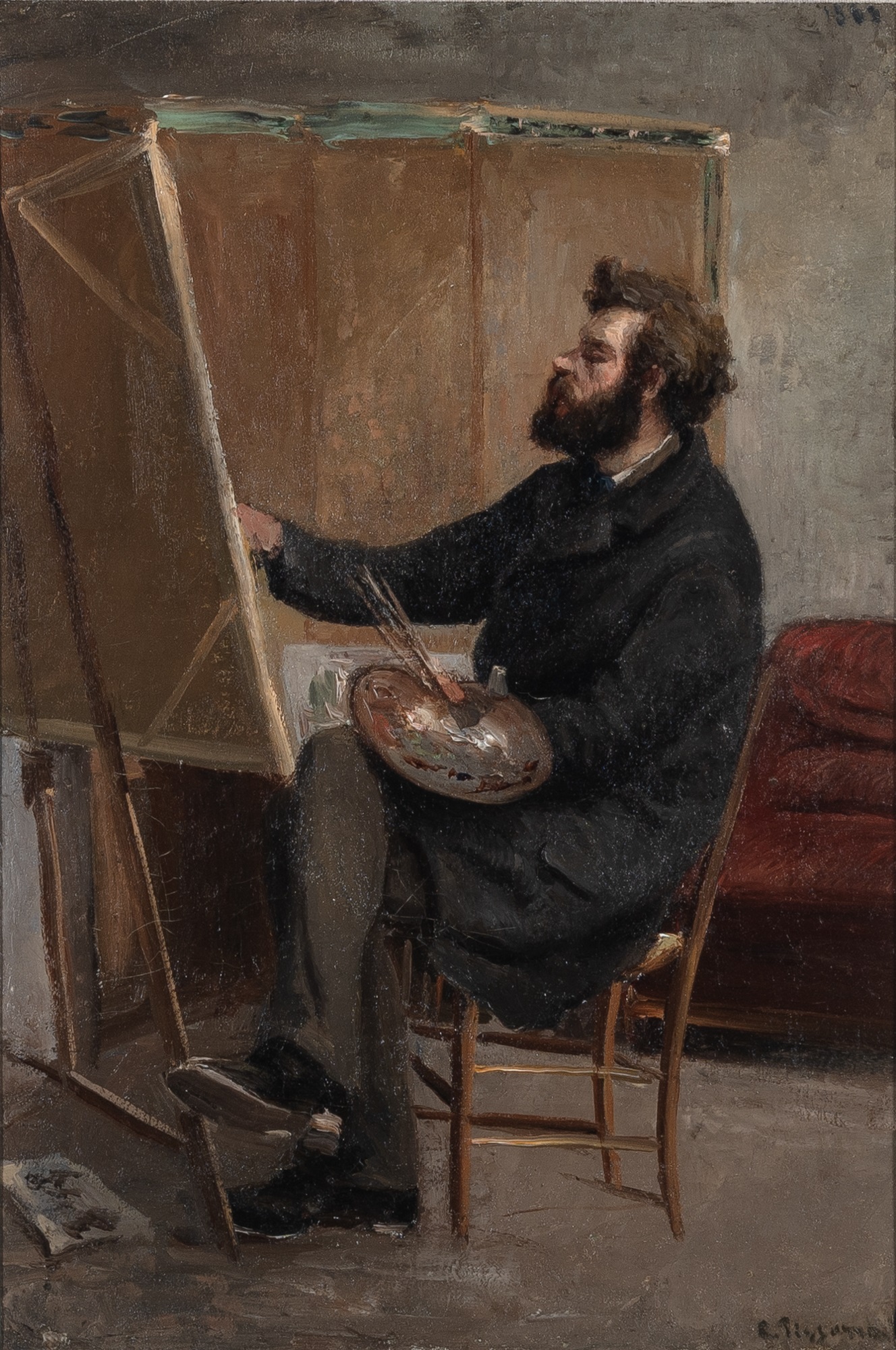
Camille Pisarro
French, 1830-1903
Often referred to as the “father of Impressionism,” Camille Pissarro brought structure, vision, and humanity to a defining art movement. Pissarro was a French Impressionist painter and printmaker known for his empathetic depictions of rural and urban life. Born into a Jewish–French family on Saint Thomas, he moved to Paris in 1855 and studied at the École des Beaux-Arts in 1856 before working as a copyist at the Louvre in 1861.
A founding voice of Impressionism, Pissarro organized the movement’s exhibitions and was the only artist to participate in all eight Impressionist shows from 1874 to 1886. A close friend and collaborator of Monet and Cézanne, he shared Monet’s interest in light and atmosphere while mentoring Cézanne.
Pissarro painted everything from pastoral fields and laboring peasants to cityscapes of Parisian streets. His work balances technical precision with emotional expression, rooted in plein‑air observation and social conscience. Pissarro’s legacy lies in his lasting influence and impact on modern visual culture.




